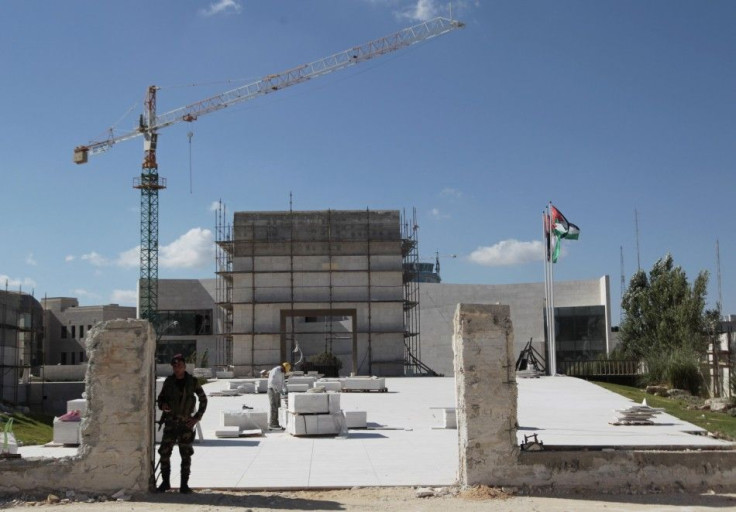Yasser Arafat Remains To Be Exhumed Nov. 26 To Further Investigate Poison Claims

A French court investigating the 2004 death of late Palestinian leader Yasser Arafat has decided to exhume his remains on Nov. 26 to further examine suspicions that he may have been poisoned, reported the Associated Press.
Arafat’s cause of death was initially attributed to a stroke, but the mystery illness he had been suffering from in the last weeks of his life has been a lingering source of speculation, and conspiracy theories.
Two separate investigation teams, led by French scientists working on behalf of Arafat’s widow, Suha Arafat, and Swiss scientists representing the Palestinian Authority, will collect samples from the limestone sepulchre inside of the mausoleum in Ramallah where Arafat is buried. Both teams are reported to have "misgivings about the other's investigation," according to the AP.
A Western official familiar with the situation said that Swiss investigators arrived at Arafat’s grave on Monday, and spent an hour inspecting the site. Tawfik Tirawi, security advisor to President Mahmoud Abbas and head of the Palestinian investigation team, said the trip on Monday was intended “to check the place” before the official exhumation. The Swiss team is scheduled to return on Nov. 26, and will have only one chance to collect samples of Arafat’s remains from the grave-site.
Tirawi previously told the Guardian that the event would not be recorded by cameras. “Due to the particular situation, there will probably be no media coverage. It's very difficult to allow journalists to be around because of all the difficulties of the operation," said Tirawi.
In July, a team of Swiss scientists in Lausanne discovered trace elements of the poisonous chemical Polonium-210 on clothing Arafat allegedly wore before his death.
"We measured an unexplained, elevated amount of unsupported polonium-210 in the belongings of Mr. Arafat that contained stains of biological fluids," said François Bochud, director of the Institute of Radiation Physics in Lausanne. Bochud added that the findings alone did not prove Arafat was poisoned, but necessitated further tests including an exhumation of his corpse.
"We have to do it quite fast because polonium is decaying, so if we wait for too long, any possible proof will disappear," Bochud told al-Jazeera.
Polonium, an extremely rare radioactive isotope, first appeared in headlines in 2006 when it was linked to the sudden death of Alexander Litvinenko, a 43-year-old former KGB agent who had become an outspoken critic of the Russian government.
On his deathbed, Litvinenko blamed his illness on Russian president Vladimir Putin. Investigators eventually found that Litvinenko had been served the deadly toxin in tea, at a London Hotel, but never concluded who was responsible for placing it there.
Asked about the Polonium levels found in Litvinenko’s body, Philip Walker, a professor of nuclear and radiation physics at the University of Surrey, told the BBC, "This seems to have been a substance carefully chosen for its ability to be hard to detect in a person who has ingested it."
Among the unproven conspiracy theories surrounding Arafat’s death were claims that he was suffering from cancer or AIDS, along with the theory that he was poisoned. Many Arabs believe that the Israeli government assassinated Arafat. Israel has adamantly denied those charges. However, Israel recently acknowledged killing Arafat’s deputy, Abu Jihad – born Khalil al-Wazir – during a raid in Tunisia in 1988, by allowing military censors to publish the information.
© Copyright IBTimes 2024. All rights reserved.











